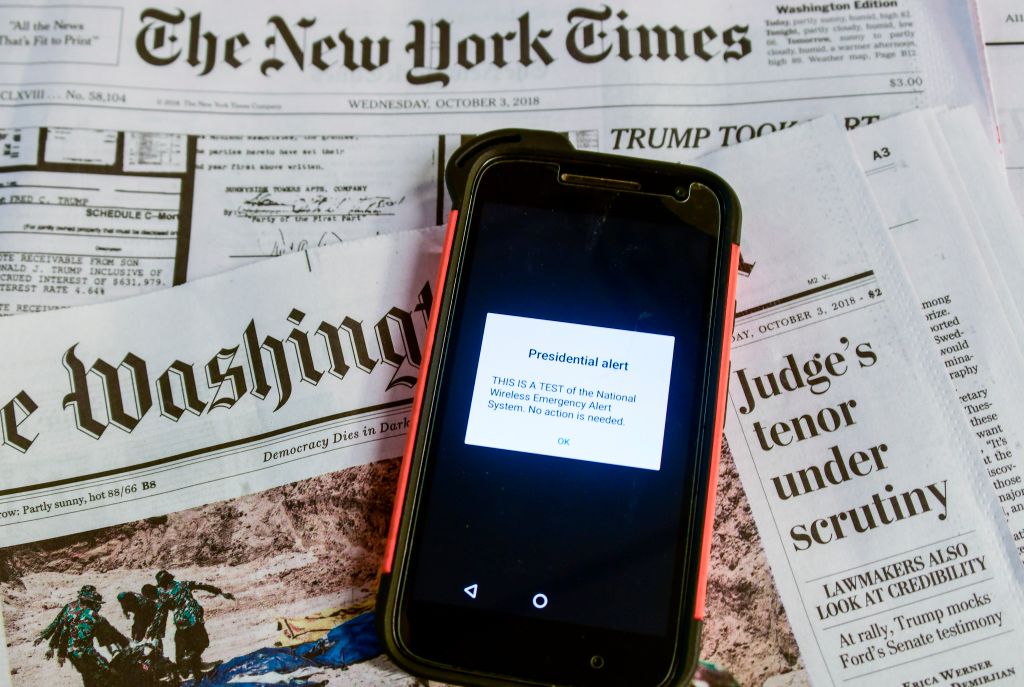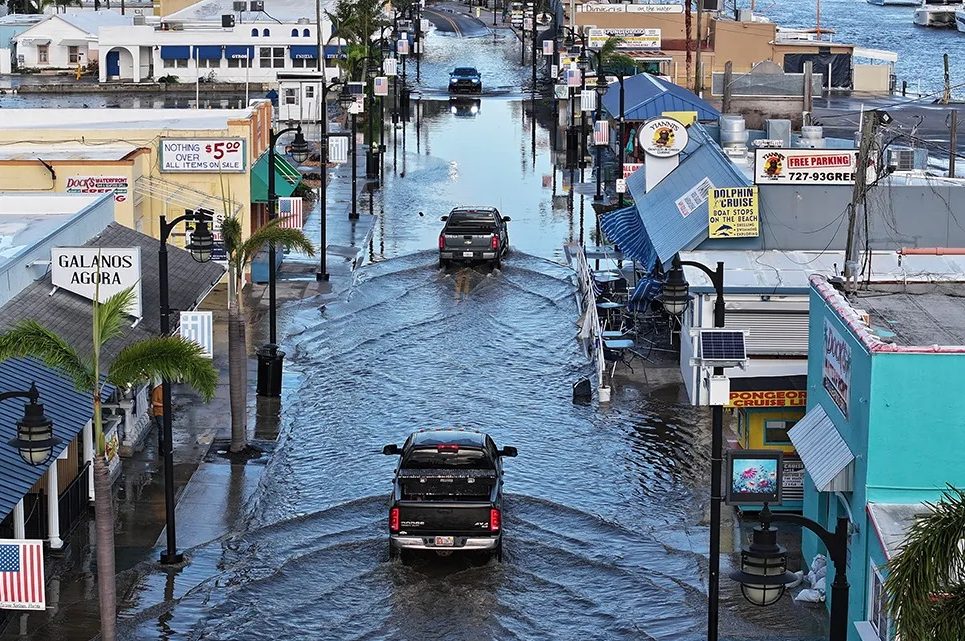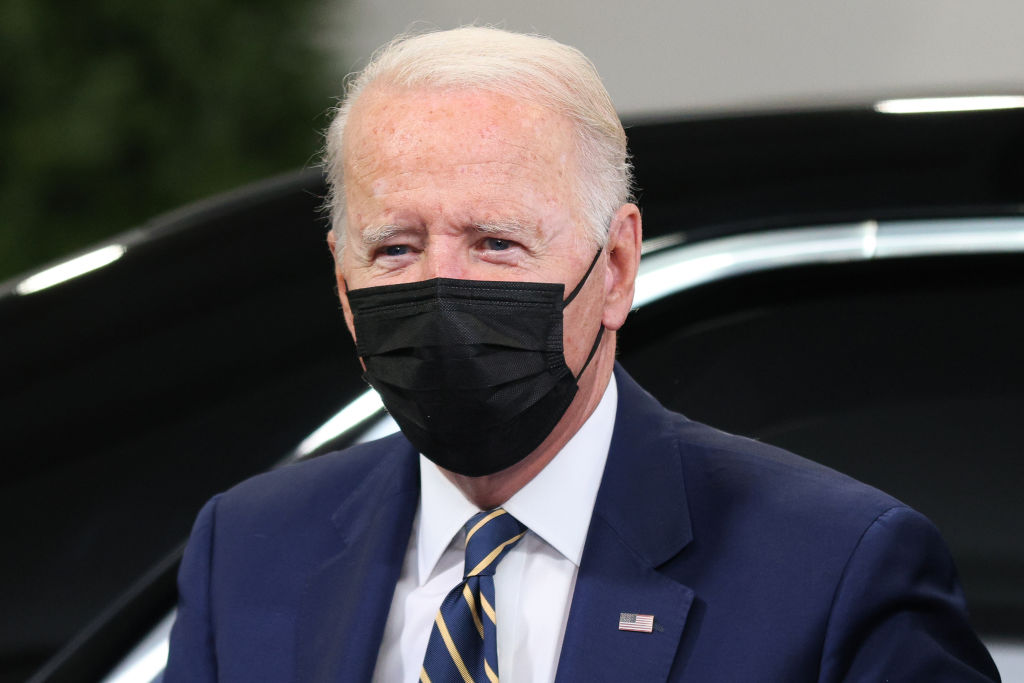Following along on social media, the most common reaction to the ‘Presidential alert’ blasted out to America’s cellphones Wednesday was a combination of bemusement and dread: the memes proliferated, and if anyone registered a complaint, it was mostly based on an impression that Trump himself had personally pried into their devices.
Per usual, however, the issue is not so much Trump, but the bipartisan surveillance superstate over which he just happens to preside. And the manner in which that superstate extends, subtly and often unnoticed, into more and more facets of life.
No one consciously opted-in to receiving these ‘Presidential alerts.’ The government simply assumed that power for itself, through a gradual process which only the most sophisticated observers are in any position to follow. This, it would seem, is a classic example of how unchecked state authority expands and asserts itself.
The public has been inured to the inevitability of these intrusive messages by the increasing frequency of ‘AMBER Alerts,’ which ring out on our smartphones with such panicked frenzy that it almost sounds as though nuclear catastrophe is imminent. I recall being in Los Angeles when an AMBER notification hit my phone around 10pm, a time people with more reasonable schedules presumably retire to bed. The ‘alert’ related to a missing child incident which was on the opposite end of LA County, home to over 10 million people. Yet everyone within a certain mile radius had to be rattled into action for this.
‘Think of the children!’ is usually the immediate indignant response when the utility of these alerts are questioned. Conveniently, ‘think of the children’ along with vague appeals to ‘public safety’ are almost always the grounds on which new expansive government powers are rationalised. Raise doubts and you’re anti-children or anti-safety. So everyone just sort of looks the other way until the thing becomes a normal feature of contemporary existence, even though the governmental power it entails is quite extreme.
The notion of ‘normalisation’ has been all the rage since Trump was elected, but here’s a clear example where a new state function became ‘normalised’ through a process of societal habituation that had nothing particularly to do with Trump. I don’t care if the president is Trump, Obama, or Daffy Duck — this capacity would be just as unnerving regardless. The issue the capacity itself, not so much the person wielding it.
‘AMBER Alerts’ can at least be shut off, although the fact that they’re turned on by default is creepy enough. But the FEMA Twitter account informed disgruntled complainants this week that citizens cannot opt out of these ‘Presidential alerts.’ So President Trump has unchallengeable direct access to our smartphones, and can contact them all at the same time without our consent. Wonderful.
Some have argued that the ‘Presidential alerts’ are just a technological update of ‘emergency alerts’ of the past, which interrupted regularly scheduled programming on TV and radio. The difference, of course, is that people did not carry their TVs around with them all day, and TVs did not house all manner of personal data. There was no expectation that TVs were customisable beyond being able to change the channel, whereas we are supposed to be the sole determiners of what appears on our smartphone screens. Receiving unsolicited messages from the president confirms this was always an illusion.























